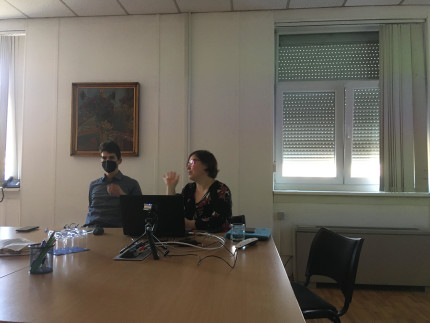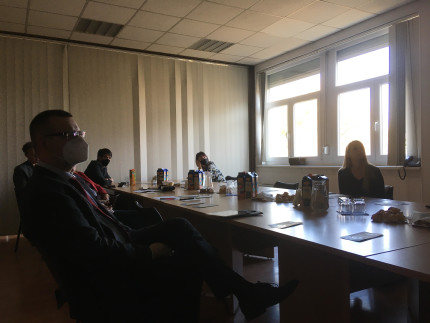Devil in the details - policy recommendations for Hungary
Interdiscipinary dialogues, strict methodology for measuring the waste water, amendments in national curriculum, and capacity building: these are the focus points in national water management policy by the attendees of the latest policy roundtable discussion in Budapest.
The policy recommendations of City Water Circles are elaborated based on the national framework analysis and former outcomes of the project: Digital Learning Resources, lessons learnt within the national and transnational partnership, European level policy and legislative analysis.
The recommendations are intended to assist decision-makers in their work and to provide a basis for an interdisciplinary dialogue on the options for circular urban water management.

Policy recommendations in nutshell
The main messages of the recommendations were presented by Ms. Zsuzsanna Király, the communication manager of the project:
• Compilation of a detailed strategy for the reuse of water
• Decentralization of the relevant state and municipal hierarchy relevant in the issue of the water reuse
• Further develop the legal framework to promote water recycling
• Appropriate adaptation of the legal environment dealing with water utility systems to ensure the sustainable operation of the relevant utility system
• “Water Certificate” - mandatory national level building requirements on circular water management for new private and public buildings and labelling of existing buildings
• Direct and indirect incentives of circular urban water management (prices taxes and funds)
• Training education and awareness raising on circular urban water management
The document of policy recommendations for Hungary is available HERE IN ENGLISH and IN HUNGARIAN.
Stakeholders opinion

However, there is no doubt on the fundamental principles of circular water management, as usual, it turned out, the devil is in the details.
Beyond the basic agreement on the importance of rational water management, the experts mentioned responsive aspects of challenges and inventions. Summarized the inputs from the attendees we can highlight the following suggestions and observations regarding the policy recommendations:
- The pandemic brought decrease in water consumption: there is a drastically decreasing in public sector and slightly increasing in private sector. The decline of consumption causes raised needs of maintenance and reconstruction of the water and sewage network. Further decrease risks the operation of the sewage system, reasonable water supplement is necessary.
- Designers, authorities and users need new standards in technical design of water infrastructure tailored to the changed parameters.
- Accurate measurement with standardized metering of waste water is the basic condition of water reuse in buildings, even in case of greywater or rainwater.
- A standard methodology of circular water management in strategic planning of settlements (e.g. Integrated City Strategy) can help the municipalities to identify the local problems and find solutions.
- The local micro environment aspects, like precipitation, bedrock, soil, topography, vegetation etc. should be taken in account in the local strategic planning and technical regulations.
- Human capacity building and specific knowledge of municipalities is a crucial aspect of circular urban management.
- Needs of clear competences of specialists in design, public procurement and other official processes.
Review of National Curriculum for Schools in aspect of climate change and water management. - Cooperation of water management companies and educational institutes (especially vocational schools) could help to relieve the lack of specialists on the market.
- Interdisciplinary discussion between experts of different fields (technical financial law or social experts) supports to elaborate acceptable solutions for all stakeholders.
The national level policy recommendations on circular urban water management in Hungary were presented and discussed with Budapest stakeholders in November. The event was organized by the Budapest Sewage Works Ltd and Zugló Municipality.
The project's policy analysis and recommendations focus on areas where national regulation and changes to existing rules and practices can intervene effectively.
